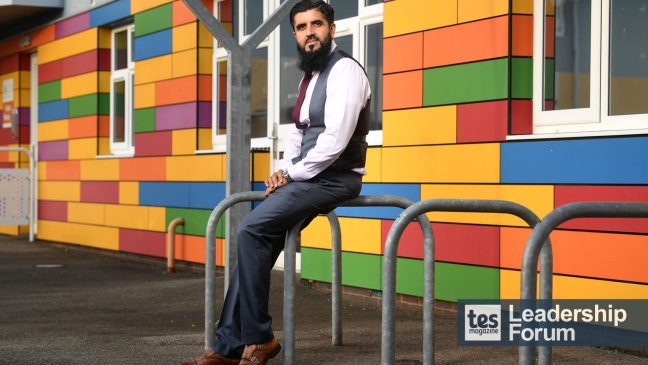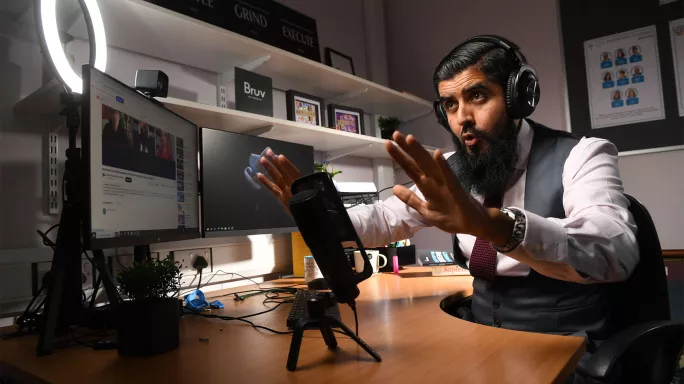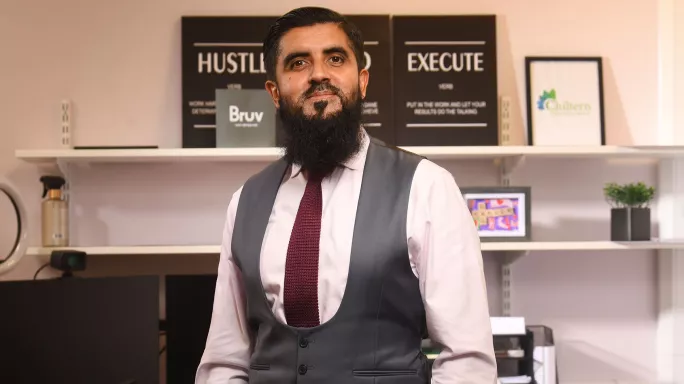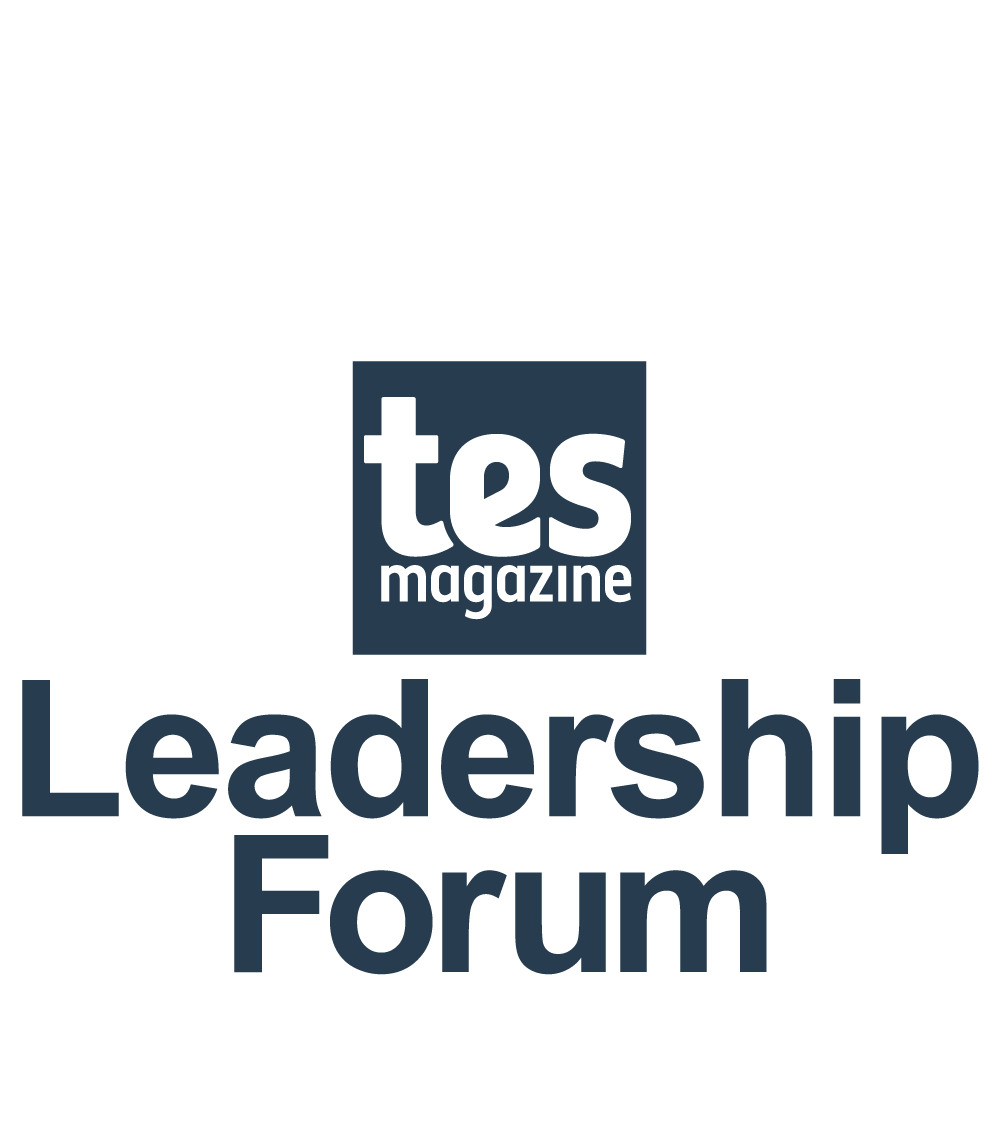
- Home
- Leadership
- Tips & Techniques
- Sufian Sadiq: ‘When the system doesn’t see you, it hurts’
Sufian Sadiq: ‘When the system doesn’t see you, it hurts’

Sufian Sadiq is director of teaching school at Chiltern Learning Trust, a former business studies teacher, and a holder of a number of other roles including Ofsted inspector, examinations writer and a trustee and founder of a number of charities. He writes:
My proudest achievement is that I have never taken a day off work. As the son of immigrants, that means a lot to me. As long as you are the hardest working person, it doesn’t matter if they are racist or whatever else - they can’t take that position off you, they can’t compete with you, they can’t ignore you. They can’t say you don’t deserve it. They can’t say you don’t contribute to British society.
I grew up in a really deprived area of Luton. My school was 99 per cent attended by ethnic minority pupils: we were the kids of people who had moved to this country to get a better life. We were living in poverty, but our parents’ expectations of us were to strive and make something of ourselves. There was no poverty of aspiration, but you had to have teachers who persuaded you it was actually possible. I was fortunate I had teachers who did that.
My maths teacher at school, Ash Choudary, that was the first time I saw a young, Asian guy in a professional leadership role. He looked like me, he sounded like me - a UK-born Bangladeshi. Then there was Dr Patrice Evans, who was my English teacher. Patrice is a formidable leader - one of the best teachers I have ever seen, and one of the best teacher trainers - and she has never tried to hide her thick Caribbean accent because it is integral to who she is. She has worked on keeping it. Both have this pride in their identity and I was not used to seeing that. These two people made such a difference in what I thought was possible and how I felt about myself.
I realised very quickly when I was at school that I had the power to influence people - that I had a leadership trait. Given the circumstances in which we grew up, there was a danger of that being used the wrong way and I sometimes fell into those wrong paths. The difference came when I was asked to do some mentoring at my old school. I realised I could use my ability to make a difference through education.
I knew I was going to be lonely in this profession. I have experienced racism. I have been the only person from an ethnic minority on a team of 25 teachers, and then the only ethnic minority head of department. So either I had to become really happy being me, or I was going to constantly find myself trying to please people, compromising and being a different person to different people. I chose the first option.

I have become comfortable with being unconventional. If everyone is going to go right, I am going to go left. I am going to see what it looks like down there. If I need to turn around and go with everyone else, fine. But I don’t get scared of taking opportunities. That’s the entrepreneur, the business teacher in me. That’s my superpower as a leader.
Leadership is about stepping up when you know you can do it better than someone else. When it comes to youth violence, for example, I know that life, I have experienced it. If I don’t step up, the people who will end up doing it will be people who just won’t get it.
We’re building this hub where we work on the tools of aspiration: how do you shake hands, how do you say hello, how do you stand at an event and make conversation while trying to eat these weird little bits of food, these canapés, when you have eaten on the floor for most of your life - how do you access those environments and therefore those opportunities to meet your aspiration to be a leader in this country? I struggled with those tools and I will make sure others don’t.
I am the trustee for community cohesion charity Discover Islam, for the local food bank, for a uniform charity, for an arts charity, for an organisation looking at work opportunities for 16- to 19-year-olds, for Luton Town Football Club Community Trust… the list goes on and it is long. All that is on top of my role at Chiltern Learning Trust. I sleep four hours a night. I am strict with that. I have chosen a life of service. I do this for the Lord. Work is worship for me.
People who don’t know me will see a very outspoken, confident persona. I open keynotes by saying I am the best person I have ever seen speak. I used to start my first lessons of the year by saying that I was the best teacher they would ever have. It doesn’t matter if you are or not, people believe there must be something there and they react positively to that. The reality is that, for me, it is just a cloak of confidence. Playing that role, that’s leadership.

I never want to be the token gesture. I feel like I have the merit to be someone of influence in the system. We are a successful multi-academy trust (MAT). We have four SCITTs, two teaching school hubs, we have behaviour and attendance hubs. We have done a huge amount of free work in the system: 24,000 people did free CPD with us during the pandemic. I have been a senior examiner, I am an Ofsted inspector, and I have written exams and textbooks. I am a MAT director. Why do I only get a call for equality and diversity? This is not a meritocracy - well it isn’t from an ethnic minority perspective, that’s for sure.
There are days as a parent and as an educator when I can no longer pretend to myself that I belong. When you so desperately want to be accepted for who you are, as you are, when you do so much for the system as I do, and then when the system doesn’t see you… it just hurts. That lack of belonging pains me. Beneath that cloak of confidence is someone who just wants to be accepted as I am, without compromise.
I recognise that I can’t look for fulfilment from others. I am scared to do that. In a country where racism occurs, where islamophobia occurs, where you see how people voted in the last election - I need my fulfilment to come from the moments I create for others, I need my joy to come from that.
I am not here for accolades or promotions. I know my role as a leader is to be an activist. I am here to make people uncomfortable by asking difficult questions about representation in the system. I don’t mind being on lists of people that no one wants to respond to. I ask the questions for those who haven’t got the confidence to ask them, I ask for those who can’t ask, I ask for the teacher coming through in 15 years so their experience is better than the one I have had, I ask for my children who are going to grow up in this system. I will take the bruising today so it’s easier for those who come after me.
You need a Tes subscription to read this article
Subscribe now to read this article and get other subscriber-only content:
- Unlimited access to all Tes magazine content
- Exclusive subscriber-only stories
- Award-winning email newsletters
- Unlimited access to all Tes magazine content
- Exclusive subscriber-only stories
- Award-winning email newsletters
You need a subscription to read this article
Subscribe now to read this article and get other subscriber-only content, including:
- Unlimited access to all Tes magazine content
- Exclusive subscriber-only stories
- Award-winning email newsletters
- Unlimited access to all Tes magazine content
- Exclusive subscriber-only stories
- Award-winning email newsletters
topics in this article




